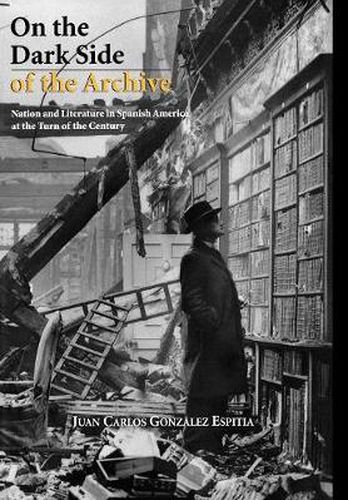Readings Newsletter
Become a Readings Member to make your shopping experience even easier.
Sign in or sign up for free!
You’re not far away from qualifying for FREE standard shipping within Australia
You’ve qualified for FREE standard shipping within Australia
The cart is loading…






On the Dark Side of the Archive examines nineteenth-century nation building through narratives that are not part of the romantic or realist traditions, specifically those associated with the critique of traditional ideas often portrayed in Decadentism and modernismo. The study focuses on the non-canonical works of turn-of-the-century authors-including Jose Maria Vargas Vila, Horacio Quiroga, Clemente Palma, and Jose Marti-and concludes with a study that compares the literary portrayal of doomed societies in the nineteenth century with the work of contemporary authors, such as Fernando Vallejo. Gonzalez Espitia establishes a critique of the concept of nation building in the romantic narratives of South America. These narratives are generally characterized by underlying erotic discourses meant to set the recently liberated countries of Latin America on a path toward class harmony, racial integration, socially beneficial marriage, and demographic expansion. An analysis of nation-building narratives understood as erotic discourses must also consider novels that manifest a dynamics of self-destruction. The authors included in this book subvert the idea of nation as a clear, positive, and fruitful space, bringing a dose of reality to this elusive concept. These authors design alternative futures for Latin America, futures that were seen as fruitless, obscure, contemptible, or doomed.
$9.00 standard shipping within Australia
FREE standard shipping within Australia for orders over $100.00
Express & International shipping calculated at checkout
On the Dark Side of the Archive examines nineteenth-century nation building through narratives that are not part of the romantic or realist traditions, specifically those associated with the critique of traditional ideas often portrayed in Decadentism and modernismo. The study focuses on the non-canonical works of turn-of-the-century authors-including Jose Maria Vargas Vila, Horacio Quiroga, Clemente Palma, and Jose Marti-and concludes with a study that compares the literary portrayal of doomed societies in the nineteenth century with the work of contemporary authors, such as Fernando Vallejo. Gonzalez Espitia establishes a critique of the concept of nation building in the romantic narratives of South America. These narratives are generally characterized by underlying erotic discourses meant to set the recently liberated countries of Latin America on a path toward class harmony, racial integration, socially beneficial marriage, and demographic expansion. An analysis of nation-building narratives understood as erotic discourses must also consider novels that manifest a dynamics of self-destruction. The authors included in this book subvert the idea of nation as a clear, positive, and fruitful space, bringing a dose of reality to this elusive concept. These authors design alternative futures for Latin America, futures that were seen as fruitless, obscure, contemptible, or doomed.